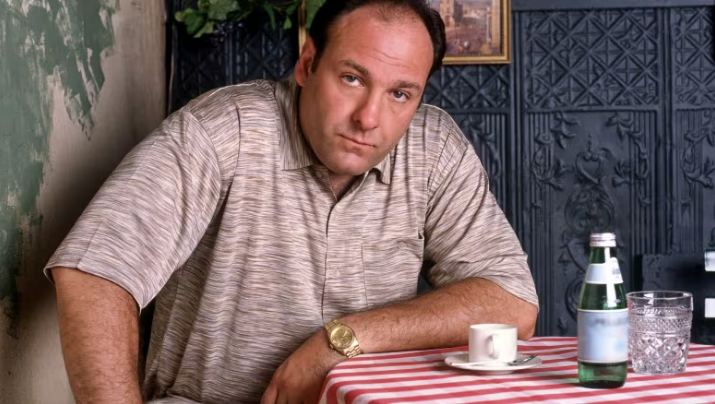Why are we still obsessed with Tony Soprano, Walter White and the other anti-heroes of TV’s Golden Age?

What does the masculinity depicted in those shows say about our current cultural moment
Earlier this month, HBO released Wise Guy: David Chase and The Sopranos, a documentary celebrating the 25th anniversary of what’s been categorized as the greatest TV show of all time. Let’s raise a glass of orange juice with (some) pulp in celebration.
Of course, for fellow pop culture aficionados, we know that The Sopranos marked the beginning of what critics (and viewers) described as the “golden age of television,” an era largely rooted in anti-hero narratives. Shows like Mad Men, Breaking Bad, Boardwalk Empire, The Wire, and even Sex and the City — which predated The Sopranos and was the ratings lifeline HBO was desperately in need of at the time — platformed characters who were messy, flawed, toxic, and even dangerous. This made TV of the 2000s especially exciting: television felt like film! Film was like real life! Real life is nuanced and troubling and filled with people we wouldn’t actually want to know! It was awesome.
Of course, this sect of cultural lore is key to understanding our memories of appointment-viewing and the subsequent think pieces that defined just over a decade of the 21st century. Yet thanks to TikTok, Instagram meme accounts, and anniversary retrospectives, there’s been a Golden Age renaissance. Tony Soprano is Instagram gold. Walter White’s monologues have been set to music. Mad Men characters are being psycho-analyzed on TikTok. Maybe this is because these TV shows are masterpieces. Or maybe it’s because in real life, we’re watching public figures battling to adapt to a changing world and responding by dragging us all down with them.
When we think about the resurrection of Golden Age-era anti-heroes, it’s key to remember that they weren’t born in a vacuum. Film boasts a long history of glorifying violent, powerful men who are desperate to reclaim any semblance of social authority (see: Travis in Taxi Driver, Tony Montana in Scarface, or Henry Hill in Goodfellas), and there’s a reason they’ve created indelible marks on popular culture.
Which is interesting: pop culture is an accessible entry point into bigger conversations about social realities, and it’s a way of illuminating various social contexts we, as viewers, might not usually be privy to. This is also why pop culture is so valuable and I love writing about it so much. Fictional characters can give us the means of articulating feelings we might not otherwise have been able to identify with. Do I think Don Draper is a good person? Hell no! But I certainly relate to his instinct to shirk vulnerability and micromanage every aspect of his persona(s). (An essay for another day.)
Yet it’s especially interesting that The Sopranos and Breaking Bad of it all are being revisited when the likes of right-wing politicians, random celebrities, and Elon Musk are defining their masculinities at the expense of those around them. And it’s more interesting still that capitalism continues to embed itself in what these definitions of manhood purport to be. The most memorable anti-heroes usually seek to push back against almost all social norms except the promise of the American Dream. Motivated by money and the power it brings, characters like Tony, Don, Walt, or even Deadwood’s Al Swearengen are shaped by the promise of more. And to that end, they are shaped by a thirst for relevance they can never quite quench.
Obviously, what’s surprising is not the prevalence of capitalist ideals, but our beloved pro/antagonists’ deservist attitudes. Characters like Tony are profoundly unfulfilled. Walter considers himself a victim of a system that’s failed to recognize his potential. Don believes his checkered past entitles him to a slice of the metaphorical pie. Their successes hinge on achieving power via paths of destruction. They’re victims, but of broken value systems. Mad Men may have even said it best: “What’s happiness? It’s the feeling before you get more happiness!”
It may be a quarter-century since we began kicking it in New Jersey with Tony and pals, but his chronic unhappiness transcends time and television. What’s heartbreaking about Mr. Soprano is that despite his privilege and resources, he suffers from a victim complex that leads him to misdirect his frustration: Tony blames women, racialized communities, the youth, or the older generation for his pitfalls — just like many real, actual public-facing people are doing right now. And as we know, victim ideology is dangerous and it’s often used to justify aggressive or hyper-masculine actions that help solidify an imbalanced power dynamic. (Enter: JD Vance spewing hate-speak as a means of grappling with the notion of . . . most things?)
But this is another reason why revisiting pop culture is so important. Dissecting the relationship between the celebration of cultural phenomenons and the flawed protagonists who define them can help us recognize the feelings and sentiments that sweep across genres, political events, and demographics. Memorable characters can be the vessels strong enough to help break down systemic walls and expose large-scale issues. Masculinity as we’ve come to know it is shaped by pop culture, and vice versa. So, to understand the anti-hero is to understand what makes us human.


